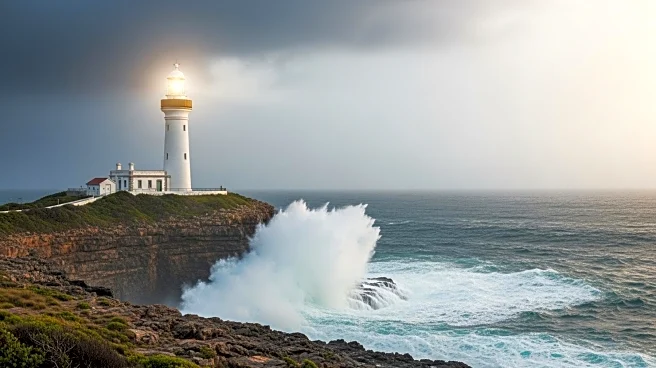What is the story about?
What's Happening?
Australia's National Climate Risk Assessment has revealed that rising sea levels and climate change-related events will pose significant threats to the country. The report highlights that by 2050, 1.5 million Australians living in coastal areas will be at risk due to sea level rise and coastal flooding. The report also warns of increased fatalities from heat-related illnesses and more frequent extreme climate events, which will impact industries, services, and infrastructure. Climate Minister Chris Bowen emphasized the urgency of addressing climate change, stating that Australians are already experiencing its consequences.
Why It's Important?
The findings of the report underscore the urgent need for Australia to address climate change, as it is one of the world's largest polluters per capita. The potential impacts on health, infrastructure, and ecosystems could be severe, with property values expected to drop significantly. The report's predictions of increased heat-related deaths and poorer water quality due to flooding and bushfires highlight the critical need for effective climate policies. The government's goal to cut carbon emissions by 43% by 2030 and achieve net-zero emissions by 2050 is crucial to mitigating these risks.
What's Next?
The Australian government is expected to announce new emissions reduction targets for 2035 soon. These targets will be pivotal in shaping the country's climate policy and addressing the risks outlined in the report. The government aims to implement ambitious and achievable goals to reduce emissions and prevent further warming. Stakeholders, including industries and communities, will need to adapt to these changes and contribute to the national effort to combat climate change.
Beyond the Headlines
The report also highlights the broader implications for Australia's natural ecosystems, including coral reefs like the Great Barrier Reef, which are at risk of bleaching and biodiversity loss due to warmer oceans. The cascading and compounding effects of climate change will challenge emergency responders and put pressure on critical infrastructure and primary industries.
















